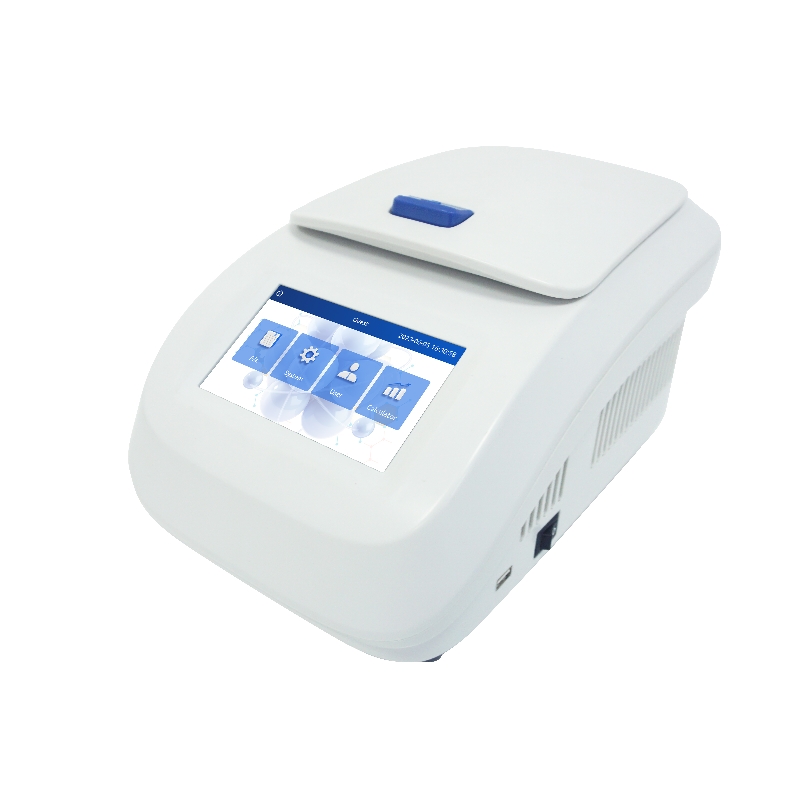Освоение ПЦР: пошаговое руководство к безупречным экспериментам
Sep 13, 2025
ПЦР – революционный метод, позволяющий амплифицировать мельчайшие следы ДНК/РНК до рабочих количеств – является краеугольным камнем современных лабораторий. Однако даже опытные исследователи иногда сталкиваются с трудностями. Независимо от того, новичок ли вы в мире молекулярной биологии или хотите усовершенствовать свои навыки, это руководство познакомит вас с основными передовыми методами ПЦР и поможет выбрать правильный лабораторный инструмент может иметь решающее значение.Сердце амплификации: ваш ПЦР-аппаратВ основе каждой реакции ПЦР лежит ПЦР-машина, также известный как термоциклер. Этот сложный лабораторный инструмент автоматизирует термический цикл Процесс – быстрый нагрев и охлаждение образцов для облегчения денатурации, отжига и расширения. Современные термоциклеры обеспечивают невероятную точность, и многие из них оснащены расширенными функциями, такими как градиентный режим, позволяющий тестировать несколько температур отжига за один цикл. Это бесценно для оптимизации анализов и экономии времени.Устранение неполадок 101: контроль — это всёНезависимо от того, насколько продвинут ваш ПЦР-машина Хороший экспериментальный дизайн незаменим. Всегда включайте контроли!Если ваш положительный контроль не усиливается, проблема может заключаться в ваших реагентах, шаблоне ДНК/РНК, или ттермический цикл настройки.Проверьте мастер-микс: все ли реагенты добавлены правильно? пипетка откалиброван?Оцените качество шаблона: ваш ДНК/РНК деградировавший или нечистый?Проверьте ПЦР-машина калибровка: выполняет ли она каждый термический цикл правильно?Если ваш отрицательный контроль Показана амплификация, вероятно загрязнение. Всегда используйте фильтры и специальные зоны до и после ПЦР, чтобы избежать загрязнения ампликонами.Повышение специфичности амплификацииПроблемы со специфичностью? Вы не одиноки. Нежелательные полосы или низкий урожай часто можно решить с помощью следующих стратегий:Используйте полимеразы горячего стартаПопробуйте приземление или градиент ПЦРОптимизируйте условия термического циклаНо самое главное — продумайте дизайн своих праймеров с умом!Используйте праймеры длиной 18–24 п.н. с температурой плавления 50–60 °C.Проверьте содержание ГХ (в идеале 40–60%)Избегайте повторов и самокомплементарных последовательностейПроверить с помощью градиента ПЦР-машина чтобы найти идеальную температуру отжигаЛабораторные приборы, которые улучшают ваш рабочий процесс ПЦРВаш ПЦР-аппарат необходим, но другие лабораторные приборы не менее важны для успеха.Пипетки: точность имеет значение. Электронные пипетки с многорежимным дозированием ускоряют приготовление мастер-микса и снижают нагрузку на лабораторию. Для лабораторий с высокой производительностью 96-канальные пипетки или рабочие станции для работы с жидкостями могут стать настоящим прорывом.Термоциклеры С функцией градиента: Как уже упоминалось, не все ПЦР-аппараты одинаковы. Инвестирование в термоциклер с точной функцией градиента позволит оптимизировать анализы быстрее и с меньшими потерями реагентов.Заключительные советы для достижения совершенства в ПЦРВсегда используйте высококачественное, очищенное ДНК/РНК.Регулярно калибруйте пипетку.Пусть ваш ПЦР-машина станьте вашим партнером — изучите его особенности, обслуживайте его и проверяйте его калибровку.Если есть сомнения, используйте градиент. термический цикл.ПЦР — это одновременно искусство и наука. Благодаря вниманию к деталям и использованию подходящего лабораторного оборудования — от надёжной пипетки до высокоточного ПЦР-аппарата — вы всегда будете получать воспроизводимые результаты, готовые к публикации.


 ПОДДЕРЖИВАЕМАЯ СЕТЬ
Xml / политика конфиденциальности
ПОДДЕРЖИВАЕМАЯ СЕТЬ
Xml / политика конфиденциальности